Anu Recommends #49
A chat with Chicano Frankenstein author Daniel A. Olivas, and new writing
Dear reader,
If you read Anu Recommends #45, you’ll have seen my review of Chicano Frankenstein (if not, you can catch up here). The Mini Interview, which I was asked to conduct by Rumpus for their member newsletter, went out with their March 21, 2024 issue. They have kindly given me permission to reprint it here for Storyteller subscribers, and I hope you enjoy it!
Before that, here are three recently published pieces.
Arsenal 1-1 Porto (4-2 penalties): This is Where We Want to Be
Published on March 28, 2024
Artwork: Charbak Dipta
Read here: https://www.footballparadise.com/arsenal-1-1-porto-4-2-pens-this-is-where-we-want-to-be
HT Brunch listicle: Book now, travel later
Published on March 16, 2024


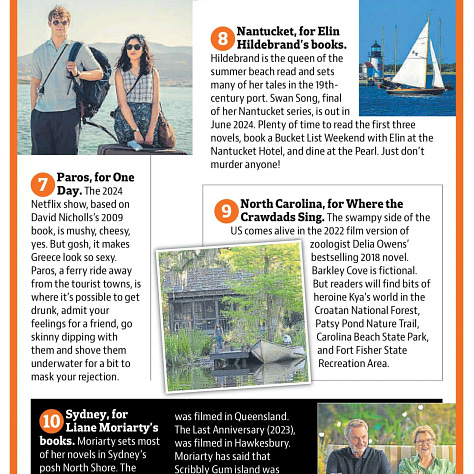
HT Brunch listicle: Ten must-reads for a dose of comic relief
Published on April 6, 2024
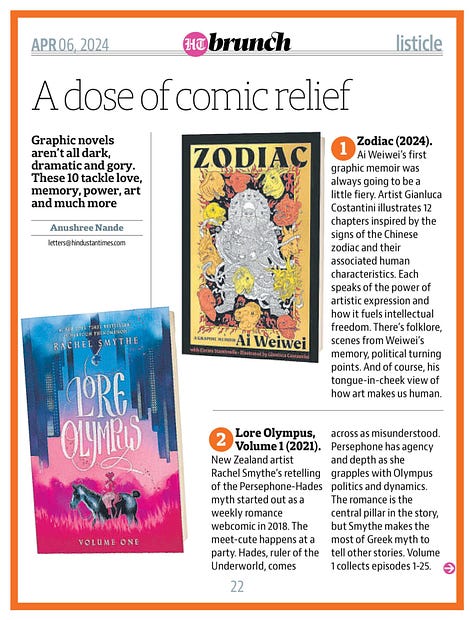
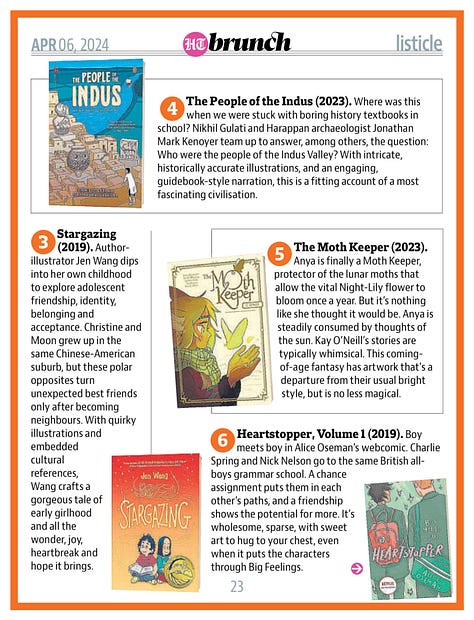
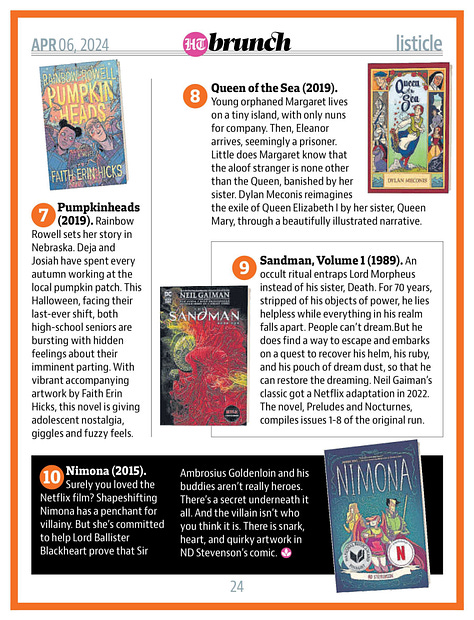
Now onto the interview!
Mini Interview with Daniel A. Olivas by Anushree Nande
Originally published in the Rumpus’ member newsletter issue of March 21, 2024. Reprinted here with permission.
Daniel A. Olivas juggles genres and multiple overlapping themes as effortlessly as he dons the hats of fiction writer, poet, playwright, book critic, and attorney. The grandson of Mexican immigrants, he grew up near downtown Los Angeles, and now resides in Pasadena, where much of Chicano Frankenstein (Forest Avenue Press, 2024) is set.
In this inventive and compellingly readable Latinx retelling of Mary Wollstonecraft Shelley’s classic, reanimation à la Frankenstein is controversial but (in many countries) legal. In this United States of America the aging workforce is being strengthened by such “stitchers,” but there is also growing mistrust against them with newer restrictive laws being proposed ahead of upcoming midterms. In this world, as an unnamed paralegal navigates his new stitcher life (every stitcher is a blank slate), he meets and falls in love with Faustina Godínez, a lawyer. This causes long-reaching, and eventually life-changing, ripples in the paralegal’s existence.
There’s science fiction, horror, humor, political satire, and existential questions to boot. What does it mean to be human, to be “The Other,” a monster, to belong? How important is it to know who we really are and where we come from? Is it possible to be whole if you’re stitched together from the parts of others? What if you have no recollection of what your pre-stitcher life was like?
I enjoyed discussing all of this and more with Olivas through a back and forth Google Docs chat.
~
The Rumpus: What are your thoughts on the rich legacy of Mary Wollstonecraft Shelley and her brilliant, ahead-of-its-time book?
Daniel A. Olivas: The brilliance of Shelley’s ground-breaking novel cannot be overstated. As I say in my author’s note, I was first introduced to Frankenstein through the 1931 Universal Pictures film directed by James Whale and starring Boris Karloff as the creature. That celluloid monosyllabic monster imprinted itself on my five-year-old imagination like no other movie horror film of my 1960s childhood. It wasn’t until high school when I finally read the actual novel and learned how different Shelley’s creature was from the film: her “monster” is eloquent and teaches himself to read. He also gives heartbreaking speeches to his creator, or father, if you will, explaining how his solitude and rejection by everyone, including Dr. Frankenstein, have turned him into a murdering beast. One of the two epigrams that I use for my novel is the creature exclaiming: “I am malicious because I am miserable. Am I not shunned and hated by all mankind?” But the real power of the creature’s calamity is in the question that Shelley raises throughout her tale: Who is the real monster of this narrative? The creature or Dr. Frankenstein? Is society working collectively to be monstrous when confronted with people who are “different?” I think that question is at the heart of why it’s spawned so many interpretations.
Rumpus: Yes, you write, “Who is the real monster among us? Put another way, what person is truly free from bias? [...] So, regrettably, I suspect that the monster may very well be within each of us.” Can you elaborate on how this manifests itself in your story?
Olivas: If you are human, you will carry biases no matter what. Of course, some biases are not pernicious, such as a bias toward loving one’s culture, including music, literature, and food, while other biases are downright evil such as racism, sexism, homophobia, et cetera. Here, each character has biases, but as with life, there is a spectrum from benign to destructive. I tried to show all degrees without making it black and white, all good versus all evil. I hope I succeeded.
Rumpus: I’d say you did! You certainly gave me much to think about. What compelled you to write your own retelling and how did you approach it?
Olivas: I’m a real sucker for retellings. In a sense, the original novel, story, or play serves as a writing prompt. I wrote my first play a few years ago to address our government’s anti-immigrant policies and used Samuel Beckett’s iconic absurdist play, Waiting for Godot, as my inspiration for Waiting for Godínez.
Since this discourse gets worse during midterm and general elections, I still wanted to write something big that addressed this issue and had been toying with writing a horror novel. I think it was percolating in my imagination for about a year until, in the spring of 2022, it struck me that Shelley’s Frankenstein would be it. So, I listened to an audiobook during my lunchtime walks since I was still teleworking during the pandemic. I also purchased the novel since my high school copy was long gone. I watched the Universal Pictures film several times. All the while, a plot was formulating in my mind.
I finally decided to start writing my novel on October 10, 2022. I wrote each morning before my day job as a government attorney, and at night after dinner. I used weekends and the Thanksgiving holiday to get a lot of writing done. I finished it on November 29, 2022. I wrote in a fever, compelled to respond to the hateful rhetoric of politicians and right-wing pundits. And because I immersed myself in the political coverage of the midterm elections, I decided to punctuate my novel with transcripts of White House meetings and phone calls, political commercials, news reports, and cable television election coverage. I couldn’t resist writing a scene with Steve Kornacki dissecting midterm election results over at the Big Wall! My approach to writing it was akin to designing a mosaic: each piece is distinct and a thing unto itself, but when you step back and take in the whole, the result is a unified image.
Rumpus: I was struck by the book’s potent brevity. I haven’t read any of your short fiction yet, but I was wondering how much being a poet and a short story writer, or even, in a way, being a playwright, which leads to a certain focused paring down, has had an impact on your work as a novelist.
Olivas: I think you’ve hit the nail on the head—to use a hackneyed expression, but it’s apt here! I am, at heart, a short-story writer, and I think that comes through in my novels and poetry. About twenty years ago, the novelist James Sallis reviewed my first story collection for the Los Angeles Times and said that I was “adept at establishing character in a sentence or two; [creating] an image, a moment of self-deception, in which we come to know these characters intimately and easily imagine their entire lives…” That was a lovely thing to say, especially coming from someone like Sallis. But I think it captures the ethos of my writing: Don’t waste words. Say what you mean and get out.
Rumpus: And yet, in those few words, you effortlessly move between philosophical, existential autofiction, science fiction, and political satire, while retaining your unique voice, perspective, and culture.
Olivas: I write because it gives me joy and I want to tell stories that center the Mexican American culture and people. I grew up in the 1960s and 70s reading books at school where none of the themes or characters resembled my family. In any event, since writing is a joyful act for me, I see no reason to restrict that joy into one genre. In other words, if I were to write only one type of story, I would be bored. And why would I keep on writing if I’m bored by it? My approach to writing is from a place of joyful creation and self-expression.
Rumpus: The satisfaction derived from giving the act of creation meaning, as one of your characters says! You use repetition to great effect in the book with the running scenes, especially in the final chapter. Can you elaborate on this narrative decision and its impact on the story, not just the end?
Olivas: Those running scenes of my unnamed, reanimated man are the most film-like in my novel. As I mapped out the narrative in my mind, I watched a lot of movies including the 1931 Frankenstein. But I also watched other films, including two by Kogonada, who is a South Korean-born American filmmaker. He is best known for Columbus (2017) and After Yang (2021)—such beautiful, heartrending films!
In any event, I imagined writing my novel’s running scenes as if they were a recurring image in a film. The act of running not only showed my protagonist alone with his mismatched body, sometimes in sync, other times not quite working as a whole, but those scenes also showed how he digested the day’s tensions, joys, and challenges through a solitary routine. Without giving away anything, the last running scene demonstrates not only a change in the man’s approach to his daily exercise, but also serves as a metaphor for the major changes that have occurred in his life and how he views himself. It is sometimes in those quiet moments when we are alone focusing on a non-intellectual act that we come to enlightenment, whether such enlightenment is minor or significant.
I’d like to thank Daniel (whose work you can check out here) for this very enjoyable chat and Laura Stanfill, the publisher at Forest Avenue Press (you can order a copy of Chicano Frankenstein from this wonderful Portland-based indie press here), for helping arrange everything. It’s always a (grateful) delight when my personal creative community expands with kind and talented individuals.
Resharing this old (but still relevant) post about libraries during the ongoing National Library Week. What's your library story?
Please feel free send in recommendations—books, movie, TV shows, authors to interview, what you’re currently reading and watching, ideas of what you’d like me to write on, rants/ramblings/excited monologues, GIFs and memes (especially them) and more. Just drop me a line and turn this into a conversation, even if just to say hi and let me know what you thought of the latest issue. Or share this with someone you think might enjoy it. I always enjoy hearing from you 😊
Take care and I’ll see you next on April 28!
Anu
You can find me on Twitter at @AnuNande (follow for all the football chatter) and on Instagram at @booksinboston.

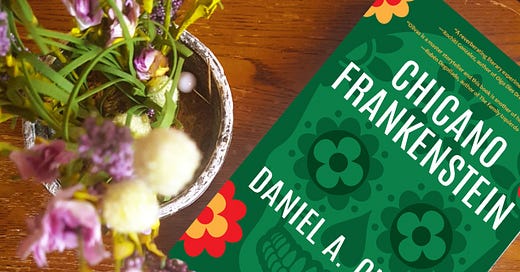


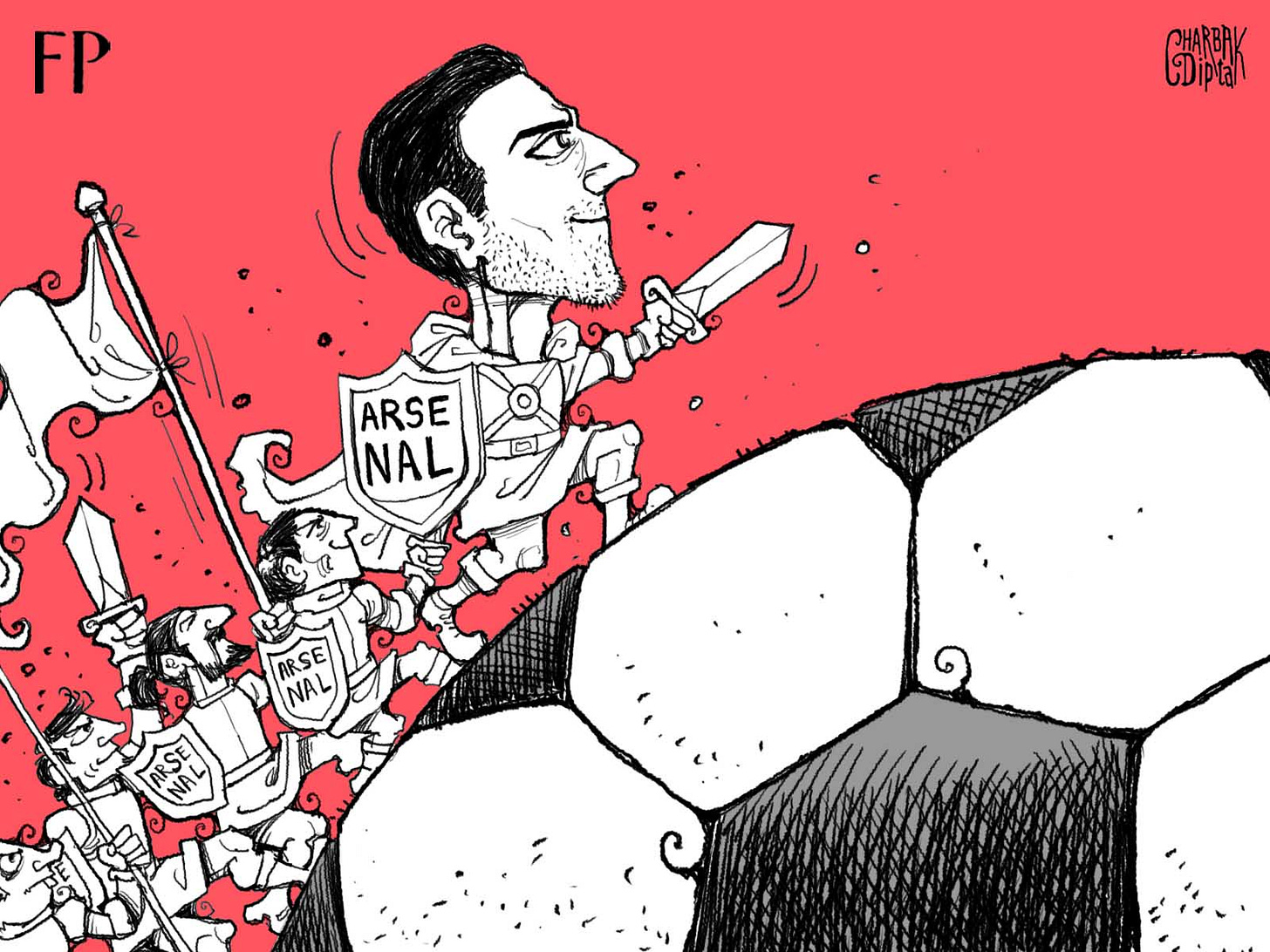

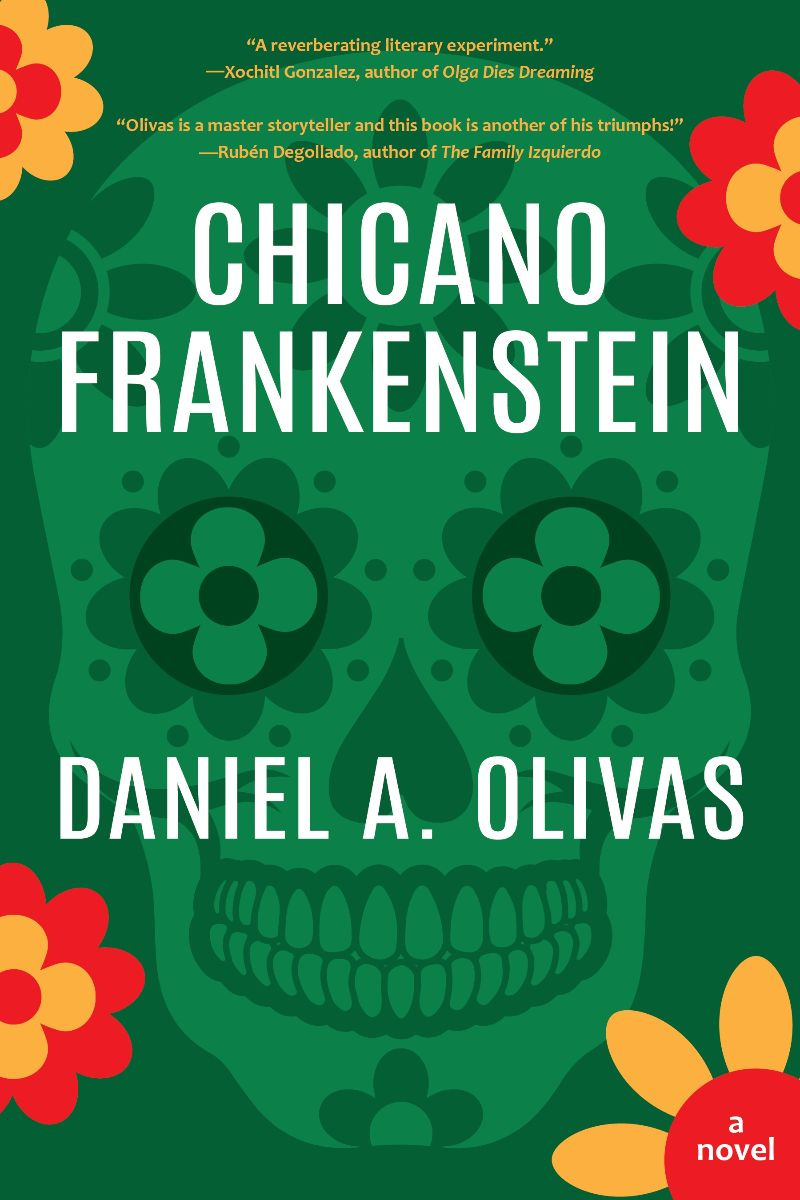

Really enjoyed the interview with Mr. Olivas. Would love to read the twist on the original Frankenstein story. Keep it up.